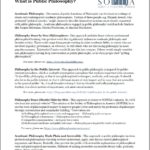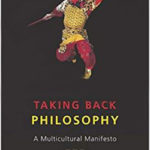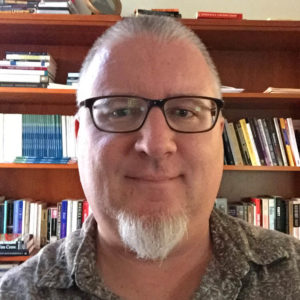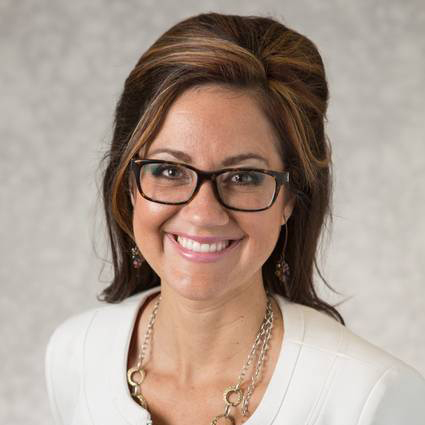
This one-sheet was created by Gregory B. Sadler and Kreigh A. Knerr of the Milwauke SOPHIA Chapter, with some questions added by Eric Thomas Weber.
SOPHIA is grateful to Greg, Knerr, and the Milwauke SOPHIA Chapter for sharing this one-sheet!



This one-sheet was created by Gregory B. Sadler and Kreigh A. Knerr of the Milwauke SOPHIA Chapter, with some questions added by Eric Thomas Weber.
SOPHIA is grateful to Greg, Knerr, and the Milwauke SOPHIA Chapter for sharing this one-sheet!

Bryan is currently Kwan Im Thong Hood Cho Temple Professor at Yale-NUS College. A recipient of Fulbright, National Endowment for the Humanities, and Mellon fellowships, he has been honored as one of The Best 300 Professors in the US by The Princeton Review. He is also Chair Professor in Philosophy in the School of Philosophy at Wuhan University, China, and Professor of Philosophy at Vassar College (USA). He has authored, edited, or translated a number of books on Chinese and comparative philosophy, including Introduction to Classical Chinese Philosophy (2011), Readings in Later Chinese Philosophy (2014, with Justin Tiwald), and Readings in Classical Chinese Philosophy (2nd ed., 2005, with P.J. Ivanhoe).
Listen for our “You Tell Me!” questions and for some jokes in one of our concluding segments, called “Philosophunnies.” Reach out to us on Facebook @PhilosophyBakesBread and on Twitter @PhilosophyBB; email us at philosophybakesbread@gmail.com; or call and record a voicemail that we play on the show, at 859.257.1849. Philosophy Bakes Bread is a production of the Society of Philosophers in America (SOPHIA). Check us out online at PhilosophyBakesBread.com and check out SOPHIA at PhilosophersInAmerica.com.
(1 hr 6 mins)
Click here for a list of all the episodes of Philosophy Bakes Bread.
We’re on iTunes, Google Play, Spotify, Stitcher, and even now on YouTube, and we’ve got a regular RSS feed too!
For our future “You Tell Me!” segments, Bryan posed the following question in this episode:
“When you’re on your deathbed and you look back on your life, what kind of accomplishment do you think will make you proud of the life you’ve lived?”
Following up on that: “Are you going to be proud of how much money you earned, about the car you bought in 2019, or about the time you showed integrity in a time of crisis, or the time you stood up for somebody who could defend themselves, or the time you spent with your family?”
Let us know what you think! Via Twitter, Facebook, Email, or by commenting here below.

Mark specializes in American Pragmatism and social and political philosophy. He is very involved on campus; he is a Faculty Associate with the Center for Professional and Applied Ethics and the Faculty Co-Advisor of the Philosophy Club. Mark has recently written and published articles in Human Affairs and the Review Journal for Political Philosophy. The focus of his recent work has been on the intersection of deliberative democracy, pragmatic pluralism, and citizenship. Mark also has interests in phenomenology especially the views of French philosopher Maurice Merleau-Ponty.
Listen for our “You Tell Me!” questions and for some jokes in one of our concluding segments, called “Philosophunnies.” Reach out to us on Facebook @PhilosophyBakesBread and on Twitter @PhilosophyBB; email us at philosophybakesbread@gmail.com; or call and record a voicemail that we play on the show, at 859.257.1849. Philosophy Bakes Bread is a production of the Society of Philosophers in America (SOPHIA). Check us out online at PhilosophyBakesBread.com and check out SOPHIA at PhilosophersInAmerica.com.
(1 hr 1 mins)
Click here for a list of all the episodes of Philosophy Bakes Bread.
For our future “You Tell Me!” segments, Mark posed the following question in this episode:
“Not to promote excessive drinking, but: Do you think that there ought to be a drinking game to go along with the Philosophy Bakes Bread podcast?”
Proposed examples: When you hear “I like that,” “Right on,” “Indeed,” Eric’s out-of-date pop-culture references, or “This is correct!”
Let us know what you think! Via Twitter, Facebook, Email, or by commenting here below.
Courtesy of the South Puget Sound SOPHIA Chapter
By Dr. Sergia Hay, Dr. Michael Rings, and Matthew Salzano
First used on March 5, 2018 at Pacific Lutheran University
Topic:
Questions for conversation:
1) How can we have productive discussions when there is disagreement?
2) What does it mean to have a “productive” discussion when there is disagreement?
3) Can tools from philosophy help in these discussions?
4) What are the roles of reason and emotion in these discussions?
5) Are there strategies to use (or avoid) in these discussions?
6) Are there times when it is advisable not to engage in these discussions?
Additional Resources:
David Bohm, On Dialogue (New York: Routledge Press 2004), http://amzn.to/2FCdb75.
Daniel Dennett, Intuition Pumps and Other Tools for Thinking (New York: Norton Publishing, 2014), http://amzn.to/2DeUS2C.
John Dewey, How We Think (New York: Dover Thrift Editions, 1910/2002), http://amzn.to/2Fplxjn.
Jennifer Lackey, The Epistemology of Disagreement (New York: Oxford University Press, 2016), http://amzn.to/2GarlKy.
John Stuart Mill, On Liberty (New York: Dover Thrift Editions, 1859/2002), http://amzn.to/2ty2PQY.
“Disagreement,” Philosophy Talk [Radio], Sunday, December 5, 2010, https://www.philosophytalk.org/shows/disagreement.
Bryan Frances, “Disagreement,” The Stanford Encyclopedia of Philosophy, 2018, https://plato.stanford.edu/entries/disagreement/.

Dr. Lake is assistant professor in the department of Liberal Studies at Grand Valley State University, with her Ph.D. in Philosophy. In 2016, she was honored with the John Lachs Award for Public Philosophy from the Society for the Advancement of American Philosophy. She is the author of Institutions and Process: Problems of Today, Misguided Answers from Yesterday (2008), in addition to many journal articles.
Listen for our “You Tell Me!” questions and for some jokes in one of our concluding segments, called “Philosophunnies.” Reach out to us on Facebook @PhilosophyBakesBread and on Twitter @PhilosophyBB; email us at philosophybakesbread@gmail.com; or call and record a voicemail that we play on the show, at 859.257.1849. Philosophy Bakes Bread is a production of the Society of Philosophers in America (SOPHIA). Check us out online at PhilosophyBakesBread.com and check out SOPHIA at PhilosophersInAmerica.com.
(1 hr 9 mins)
Click here for a list of all the episodes of Philosophy Bakes Bread.
We’re on iTunes and Google Play, and we’ve got a regular RSS feed too!
For our future “You Tell Me!” segments, Dr. Lake proposed the following question in this episode, for which we invite your feedback: “How can you today step across the divides that we have and engage and advocate for progress with regard to the shared problems that we face?” What do you think?
Let us know! Twitter, Facebook, Email, or by commenting here below!